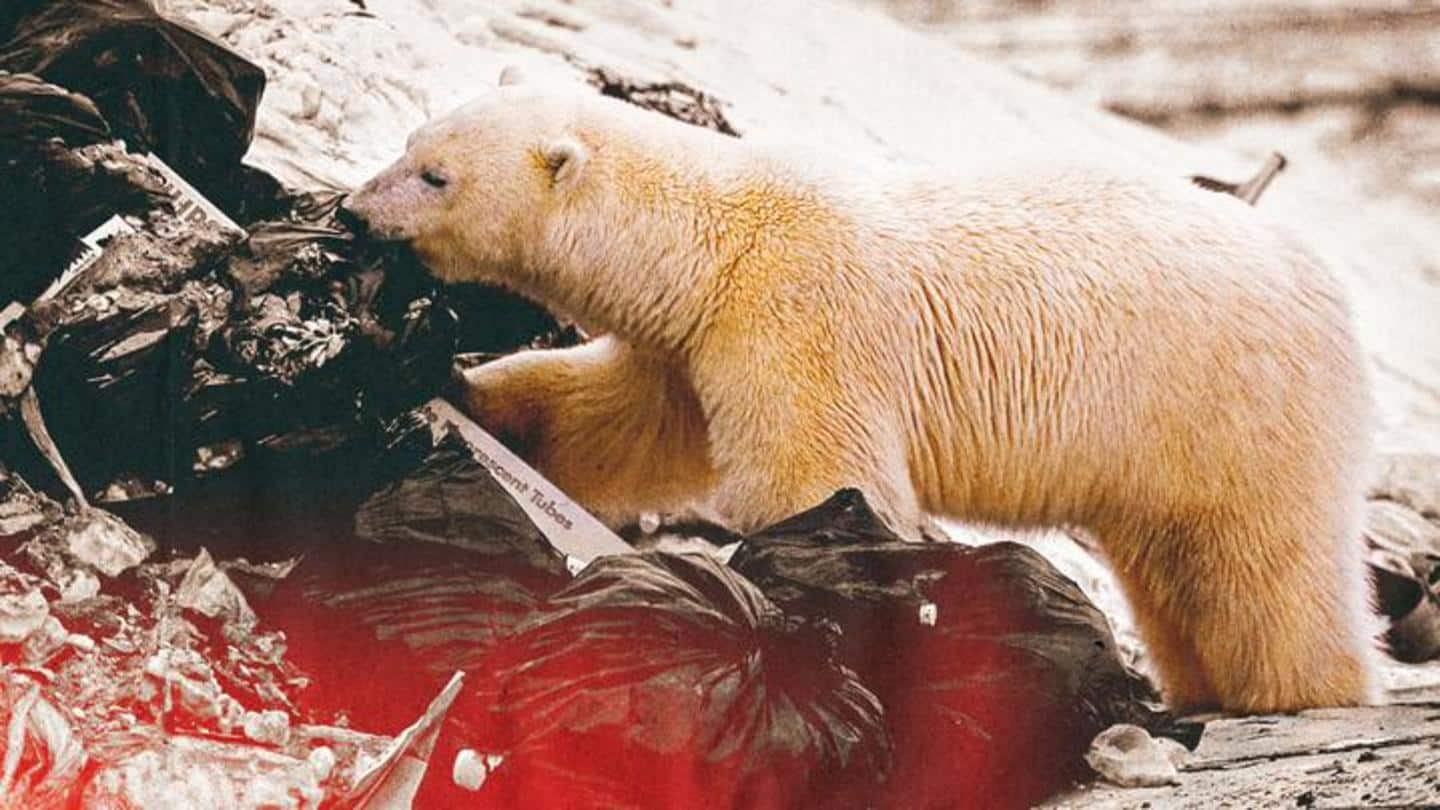
Polar bears forced to eat garbage amid rising Arctic temperatures
What's the story
New research has warned that polar bears in the Arctic are consuming more garbage amid a rise in temperatures.
They are reportedly spending more time fasting or scavenging through garbage heaps instead of hunting seals on sea ice.
This is also leading to increased conflict between humans and polar bears, an international team of scientists has suggested.
Study
Reliance on garbage detrimental to Arctic beings
The paper, published by the Cambridge University Press, has been co-authored by eight international scientists.
It raises an alarm about the impact of human waste on polar bears, which are increasingly being pulled toward its consumption.
It shares the negative food-related interactions, including the deaths, between polar bears and humans in Russia, Alaska, Canada, and Norway.
Quote
What do the scientists say?
"There have been some human fatalities in the eastern Canadian arctic. Surprisingly, many places that did not have any issues are now facing an increasing number of conflicts between humans and polar bear populations," Andrew Derocher, co-author and University of Alberta professor, told Smithsonian Magazine.
Garbage
Rise in arctic temperatures pushing bears to scavenge
Historically, polar bears have wandered around on sea ice to hunt for their main food source: seals.
But with temperatures in the Arctic Ocean rising four times faster, the ice melts faster every spring and forms later in every fall.
This, in turn, is pushing bears to either go hungry for long periods or dive into human garbage for food.
Ice
Polar bears spending more time on land
The decrease in sea ice levels is forcing polar bears to spend more time on land.
In a dangerous trend, as they find their way to garbage dumps, polar bears end up ingesting plastic food wrappers, metal, toxic chemicals, and even wood.
The paper also suggests that polar bears often end up being euthanized by wildlife managers because of public safety concerns.
Waste management
Scientists urge humans to categorize waste, manage dumps
The paper advises governments to take more stern steps in improving waste management by installing fences outside dumps, creating awareness about burning garbage, and distributing bear-resistant trash cans.
Since bears return to the spot where they find food, the paper advises taking swift action to control food-related polar bear issues by cutting off their access to garbage.